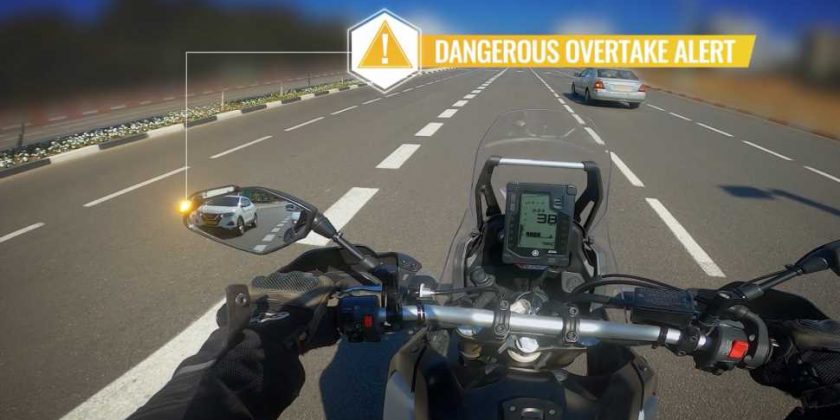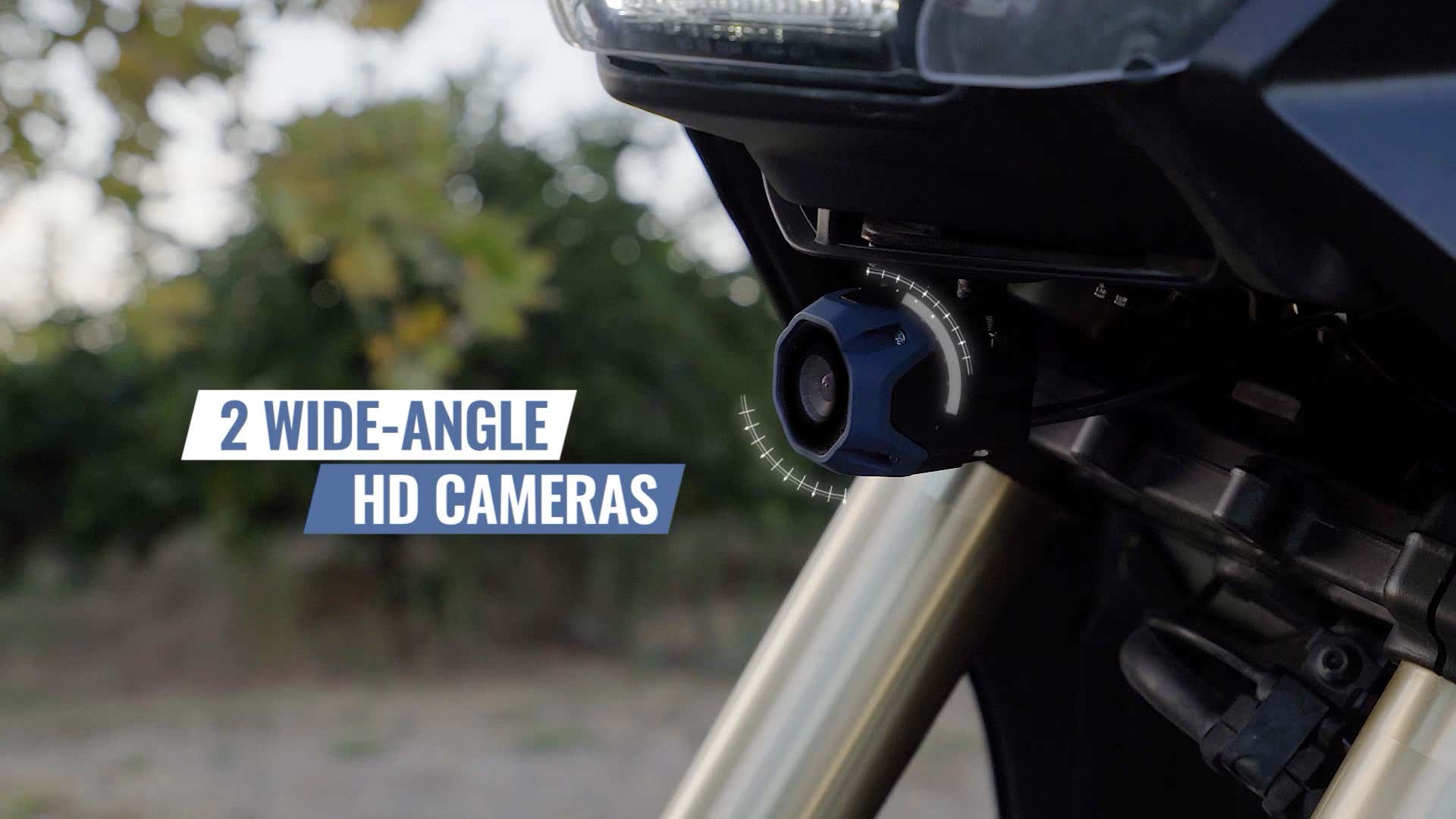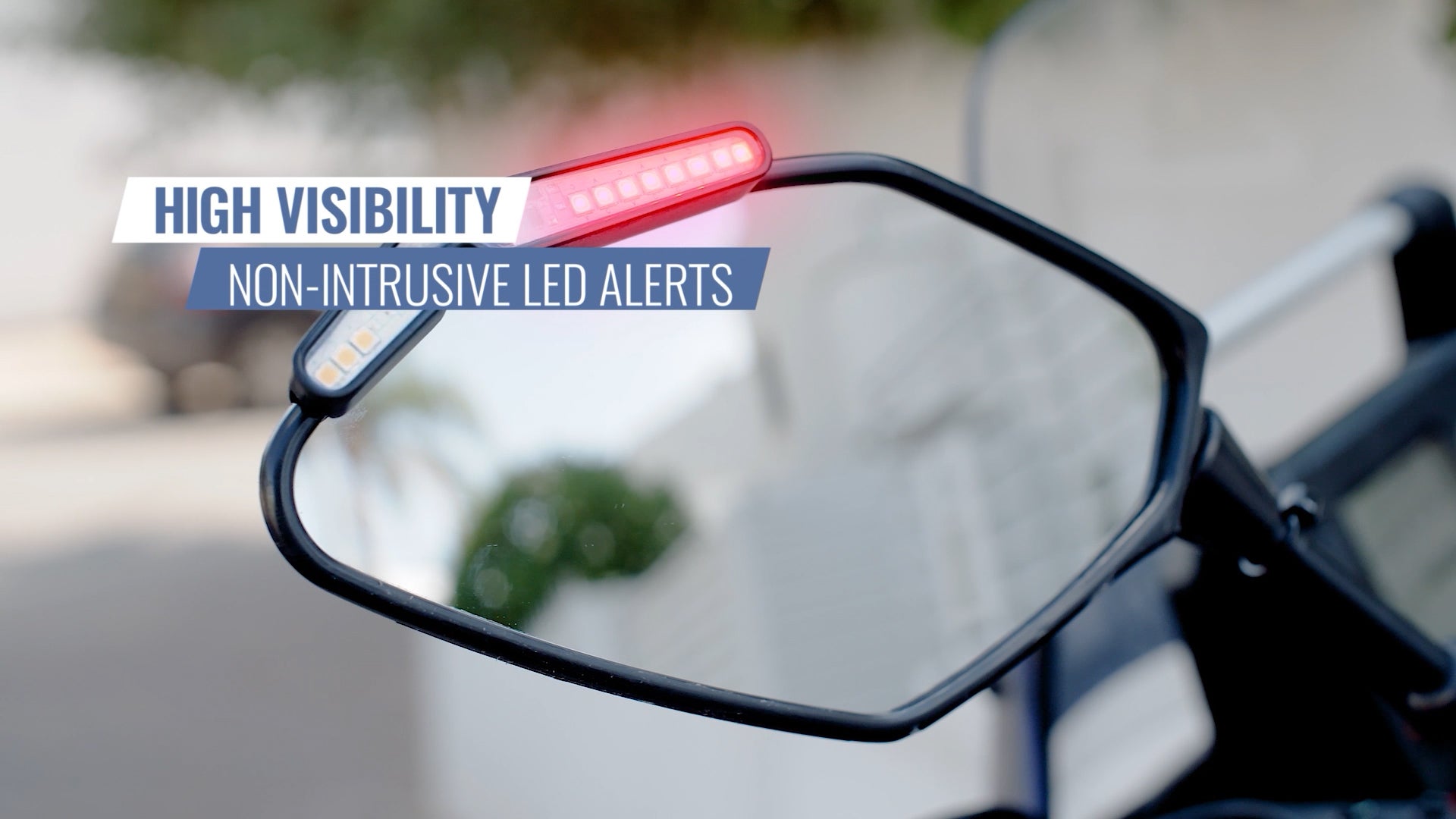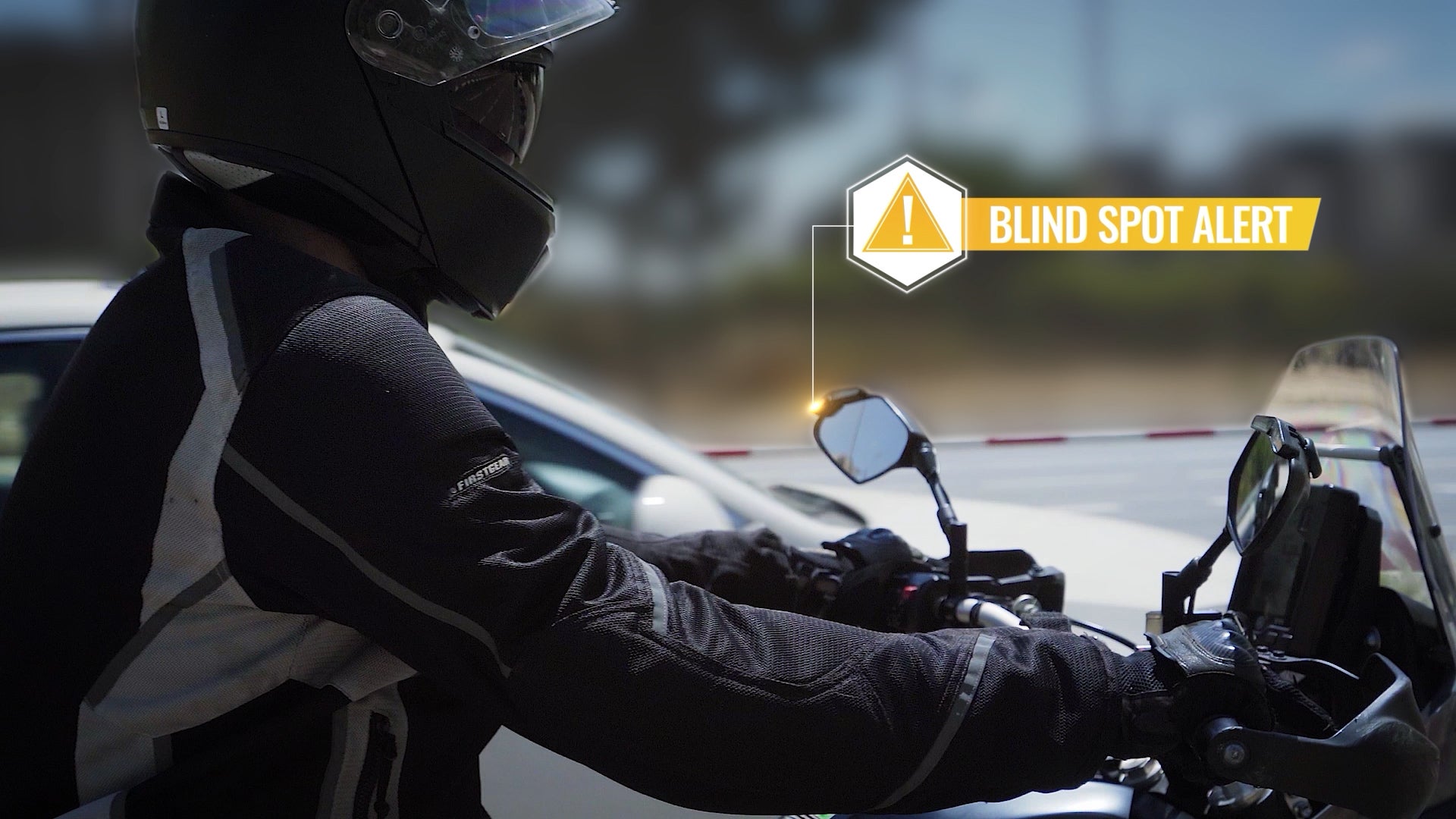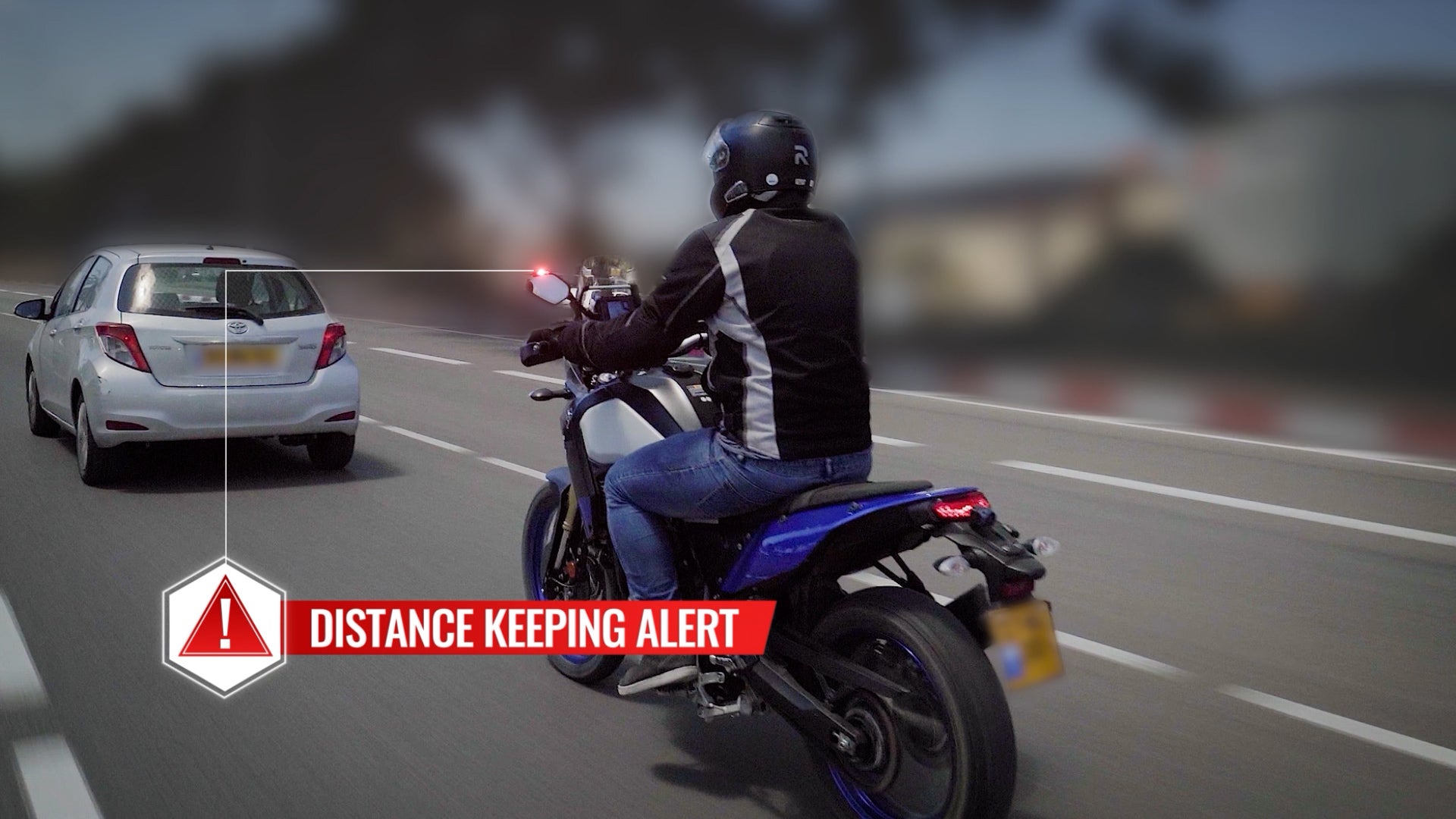We’re all familiar with the myriad collision avoidance technologies available for cars nowadays, from blind spot monitoring to forward collision alerts. Finally, one startup has figured out how to adapt this technology to motorcycles so they can have those same useful alerts on the road.
Ride Vision claims to be the first collision-avoidance system for motorcycles, and it utilizes two HD cameras on the front and the back of a bike to monitor for threats 360 degrees around the bike. Those threats, such as unsafe overtaking situations or not enough distance between your bike and the vehicles ahead, are gauged by predictive algorithms that predict where both the bike and traffic around the bike could go in a worst-case scenario.
Just like in a car, the system uses a series of bright but not glaring LED lights to flash at the rider when there’s trouble ahead. You can watch the system handle different scenarios in the video above, which shows Ride Vision’s distance keeping, dangerous overtake, blind spot and forward collision alerts. The distance keeping and forward collision alerts are customizable, too—just in case you’d rather have more or less distance between your bike and the next vehicle than the default.
This wasn’t just a matter of putting a system made for automobiles on a bike, either. Ride Vision had to take into account the increased angles at which riders take turns as well as their ability to lanesplit. A car system would likely panic and beep incessantly for you to get back in one lane the second you kept riding on that dividing lines between lanes, for one.
Ride Vision says that their system can be installed on any two-wheeled vehicle, regardless of make or model.
The system also connects to a mobile device so you can keep tabs on things such as ride data, fuel consumption calculations and even possibilities for insurance rate reduction. The system can be upgraded over time as new features are developed. You can also use it to record and share videos of your ride, aspiring YouTube influencers, you.
All in all, this looks like potentially life-saving tech in an easily installed package. You can check it out further on Ride Vision’s site here. The system goes on sale in early 2021.
Got a tip? Send us a note: [email protected]
Source: Read Full Article
